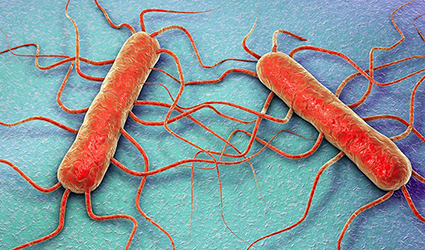BRAIN CANCER THERAPY USING HOMING SYSTEM APPROACH
September 7, 2018
Source: drugdu
 1,393
1,393

Scientists have at last found that gaining access to the cancer cell via blood-brain barrier is the major obstacle during brain cancer treatment.
If the blood-brain barrier remains healthy, it effectively protects the brain by preventing the entry of harmful cells.
In contrast, if the blood-brain barrier remains unhealthy, the scenario changes according to varied neurological diseases, as mentioned below.
- In multiple sclerosis, there occurs a change in blood-brain barrier followed by disrupting the brain protection.
- In brain cancer, the blood-brain barrier blocks the entry of immune T cells, which can effectively fight cancer.
Hence a multi-institution international team led by the scientists at Baylor College of Medicine had developed a novel approach to engineer immune T cells with first-in-class molecule called as Homing System, to cross the blood-brain barrier and successfully fight tumors. This recent discovery was published in the journal Nature.
Heba Samaha, the lead researcher from the Children's Cancer Hospital Egypt-57357, said "The results were very encouraging. We observed that T cells with both the Homing System and CAR substantially shrunk tumors in all treated animals. In contrast, T cells without the Homing System homed poorly on the tumor and thus only transiently slowed down tumor growth. Rather importantly, Homing System-T cells were strictly directed to tumor sites, but not normal brain or other normal body tissues."
Ahmed, from Baylor and the Texas Children's Cancer and Hematology Centers, concluded "Next, we will test the Homing System platform in clinical trials and simultaneously engineer next-generation Homing System molecules for the targeted delivery of therapeutic or diagnostic cells to other diseases. We anticipate that the Homing System platform could be a gateway into brain pathologies, including both inflammation and cancer."
By editorRead more on
- Ray- permeable electrode September 10, 2018
- ECG products – Wire Electrode September 10, 2018
- GAUZE SPONGES September 7, 2018
- RealView integrates Intel RealSense technology into AR medical system August 8, 2017
- Driven by drugs for lowering blood sugar and losing weight, the export value of Chinese Western medicine preparations has reached a record high February 2, 2026
your submission has already been received.
OK
Subscribe
Please enter a valid Email address!
Submit
The most relevant industry news & insight will be sent to you every two weeks.



